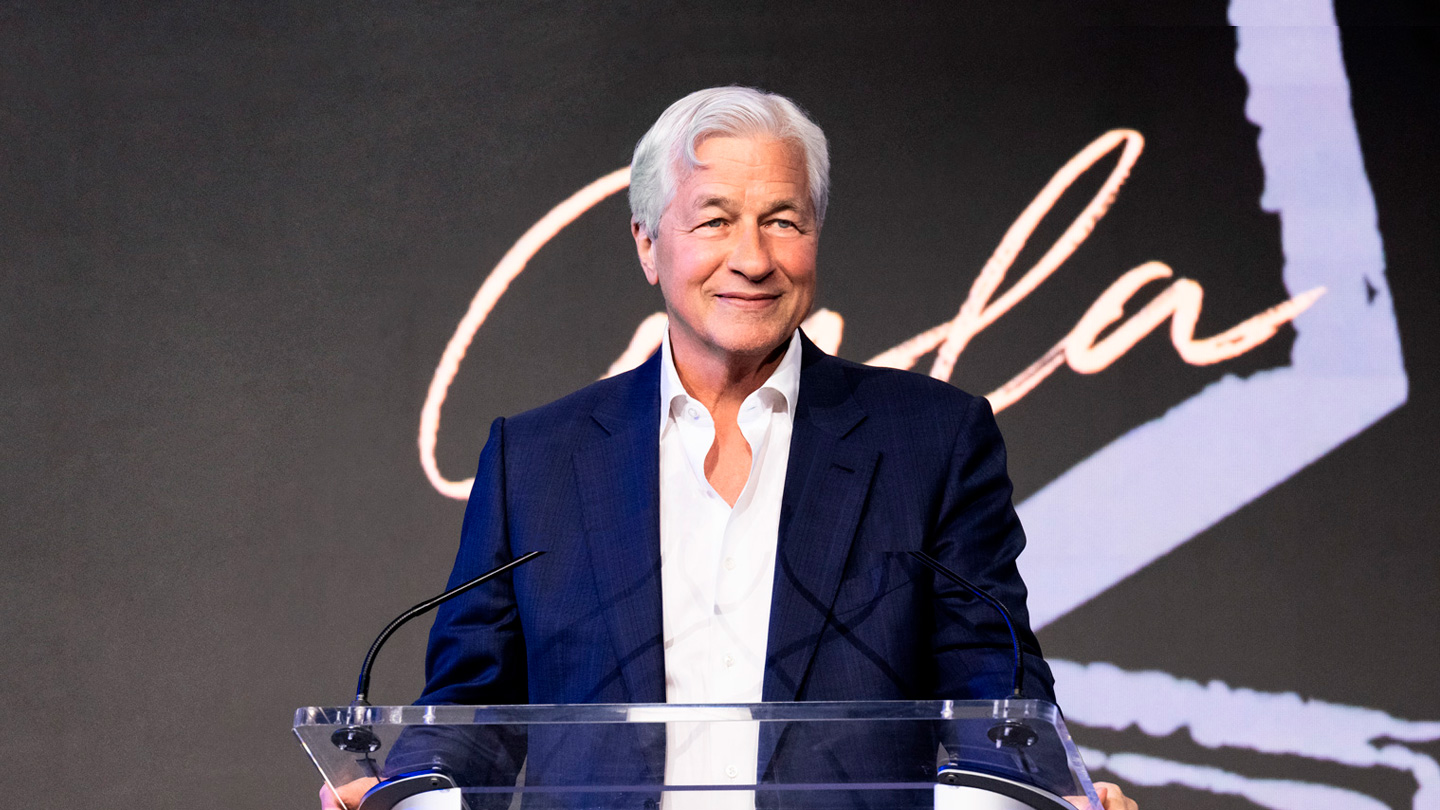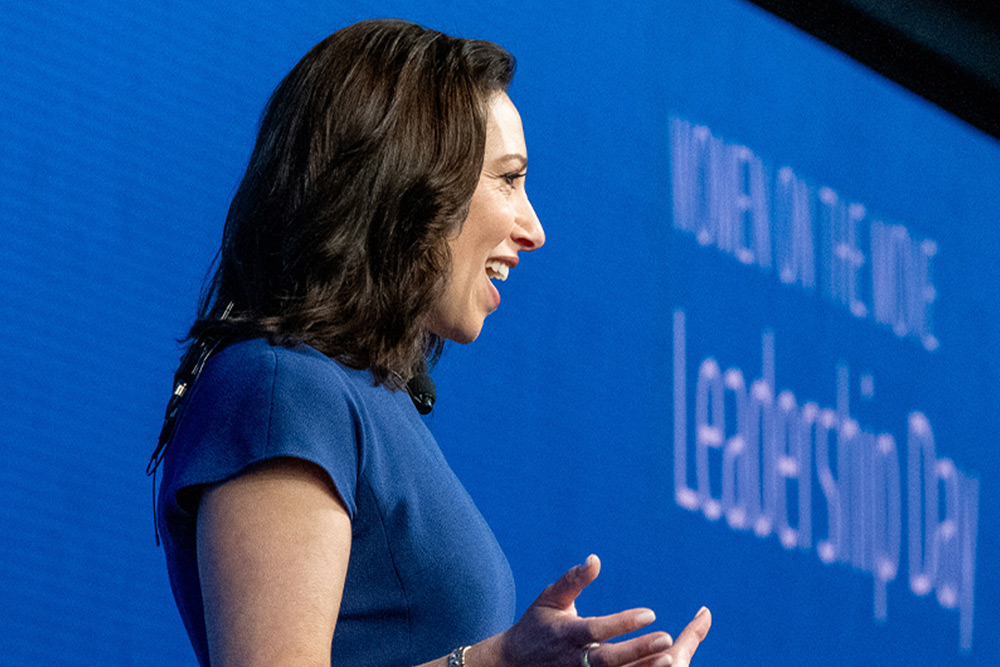Sam Saperstein:
Welcome everyone to Women on the Move Leadership Day, 2021. I am so excited to be here with colleagues, clients, and partners around the world. Today we're taking steps toward a normal program with some live speakers for the first time in two years. Wherever you're joining from, I hope you still feel the power of the entire Women on the Move community behind you. This community is resilient and next year we hope to be back together in full force. So I mention the word resilience for a reason, to me, resilience isn't only surviving hard times. It's reinventing in the face of difficulty and emerging stronger. In many ways, that's been a major theme of the past 18 months, and it's also our theme for today. Resilience comes in many forms. You may not know the name Melissa Stockwell, but when it comes to resilience, it's hard to imagine a better example. Our partners at the Wounded Warrior Project introduced us to Melissa, so let me tell you a little bit about her. As a girl, Melissa was a gymnast and dreamed of going to the Olympics. After college, she pursued another goal and she enlisted in the US army. She deployed to Iraq in 2004, March. One month after arriving Melissa's Humvee was hit by a roadside bomb. She'd lost her left leg from that blast. She was the first American woman to lose a limb there. She was 24 years old and at a time when many women are just starting their adult lives, Melissa had to deal with a life-changing injury. But that didn't stop her. She loves sports and wanted to stay active, so she leaned on her community. She turned to the Wounded Warrior Project and through them found the encouragement to take up skiing and become a competitive swimmer. Just six months after her injury, she started training, determined to reinvent herself. Four years later, she competed in swimming in the 2008 Beijing Paralympics. And then she went on to become a three time world champion in the triathlon. She recently competed in the Tokyo Paralympics just eight weeks after suffering a major bike crash. Melissa's energy and determination are incredible. But what really inspires me is her perspective. She said "Losing my leg was a traumatic event, but I had the power to choose how I went from there." She chose to keep striving. And now she says that she's done more with one leg than she ever imagined doing with two. That's the perspective of a resilient warrior who reinvented herself in the face of adversity. In the past 18 months, the whole world has faced unprecedented challenges and women everywhere have demonstrated remarkable resilience. Last year at this conference, I spoke about women who had dropped out of the workforce. They left entirely, or they scaled back to take care of their families, to homeschool their children, to manage their households. In the US alone, 4 million women dropped out at the peak. But there are signs of hope. Half of those women have returned and women's unemployment has steadily fallen. Women are driving more changes to our caregiving infrastructure. They're helping companies to reinvent work by showing that flexibility and productivity can co-exist. Women managers are stepping up to support their teams, checking in on their employees' wellbeing and their workloads. And they're also showing up as allies demanding an equal playing field for everyone. That's the essence of Women on the Move. Our mandate has always been to fuel female ambition and advance financial equality. We could never have anticipated the extent of women's needs over the past year and a half, but because we stayed true to our vision and reinvented ourselves, we've been able to achieve impact beyond what we imagined. Some of the most resilient people during the pandemic had been women small business owners. And let me tell you about one of our clients. Her name is Sonat Birnecker Hart. She's the co-founder and president of KOVAL distillery in Chicago. Sonat sells spirits around the world. Her business was crushed by the pandemic. Sales first fell overseas and then in the US. While she was trying to keep her business afloat, she was alarmed by the shortages of hand sanitizer in Chicago. And as we can all remember in the early pandemic, it was so hard to get sanitizer even for healthcare workers. Well Sonat had an idea. She knew her business could make sanitizer using distillery equipment and alcohol, but there were a lot of hurdles to this. First, she wasn't licensed to make or sell hand sanitizer. Second, she didn't have the right operational model. And third, she had no distribution. That does not sound like a very successful business case. But that did not stop her. Instead, she worked around the clock to reinvent her business. She started with regulators to get the right licenses. She got their approval on a Thursday and by Monday, she was in the market with free hand sanitizer. How could she do this in four days? Well just like Melissa Stockwell, she leaned on her community and she embraced new ways of doing things. She rallied the beer producers in Chicago to donate beer to distill. She found companies willing to donate containers and bottles and even trucks to donate the sanitizer. Think about this, in a few short periods, very short period of time, her business was cratering, her community was hurting, she stepped up and decided she could and would solve a major problem. And as a result, KOVAL has donated more than 5,000 gallons of hand sanitizer, and they turned into a whole new line of business to help make up for lost liquor sales. In the midst of challenges, she pivoted and kept going. KOVAL connected deeply with the community, strengthened its team and developed new technology to help the liquor business. Now KOVAL in Yiddish is, means to forge ahead. And that's exactly what Sonat do with her business. We have seen these pivots from countless small businesses in our communities and Women on the Move has changed, too. We went virtual, and this helped us to scale and support even more small business owners. One way we did this is through a new program called Curated Coaching for Entrepreneurs. It's a free program that offers virtual training on different business topics every quarter. and business owners can meet one-on-one with coaches and talk about their own unique issues. And they can do it when it's convenient for them like at night or on the weekends. While it's still early in this program, we've reached nearly 400 founders who are eager to invest in their own company's future. Now like these entrepreneurs, our employees here are eager to invest in their own careers. A few years ago, I was fortunate enough to take an in-person training program with The Fast Forward Group. And you may remember Lisa McCarthy was here two years ago, their co-founder, and she taught us how to choose a new perspective. Fast Forward also teaches us to create a bold vision for our lives. And so I did that too. I thought about my own professional and personal goals and how I could bring them closer together. And that's what led me here, to launch Women on the Move. Well, I wanted to bring Fast Forward to others, but we really needed to scale this. And once the pandemic hit, we wondered how could we take in a very intensive in-person training program and bring this out to everybody across the world? Well, the answer is that we had to find a new approach. So we created digital content, but we kept the live coaching. And then we tapped into hundreds of employees around the world to help us lead our Zoom discussions. As a result, we rolled this out last year to greet response and feedback. We have 6,000 employees who've already taken the program and another 2000 just started it. Many people have told us this has changed their lives. One woman told us she took Fast Forward because she felt she was languishing in the same job for a while and she didn't know what her next move was gonna be. Well, the program helped her see her own strengths. She developed a new found confidence and learned how to manage her own inner critic. The best part is that after the program, she applied for a new job, one that she thought was a stretch in the past, and she got that job. While her story is unique, The Fast Forward program has helped thousands of people articulate their goals and build up the confidence to pursue them. So speaking of goals, I wanna close with some big and exciting news. You may remember in 2018, I announced that Radio City Music Hall, a three-year goal for the firm to lend a $10 billion to women small business owners. It seemed like a lofty goal back then, but we really wanted to make a statement about the firm's commitment to women, and that we did not anticipate a global pandemic that would hit our businesses so hard, but that didn't stop us. In fact, it made us more determined as the need was so much greater. Well, I am so proud to say that thanks to our incredible Chase for Business partners, the firm not only hit 10 billion, we blew through that goal earlier this year. Since 2019, Chase has now extended 12.7 billion in credit to female small business owners. So obviously that's way ahead of our goal. We're very excited about that. And it also excludes the loans that the firms made through the government's paycheck protection program. Our firm finance more than 400,000 women businesses. That's 400,000 dreams that we helped to help fund and improve women's economic security. And we all see these businesses every day in our communities. These are the women who own the local restaurants and the bakeries and the fitness studios, we all must continue to support them. We are not done with this critical work. Going forward, we'll focus on the most underserved segments, the black and Latina female small business owners. And as part of the firm's racial equity commitments, we'll continue to coach these businesses and help them
to thrive. So we have a great program for you today, and I really wanna thank our core women on the team who helped us, Lucy Fitzpatrick, Mia Moore, Maura Hart, Victoria Goodman, and Olivia Alvarez. Thank you all so much. And of course our wonderful AV team, we really couldn't do this without you. I hope you're all inspired by the speakers today and that you can learn something to apply to your own life and career. As our workplaces open up, let's continue to lean on each other and find support. As individuals, we each have the ability to be resilient. And as a community, we have the power to come back stronger together. Thank you so much and have a wonderful day.





